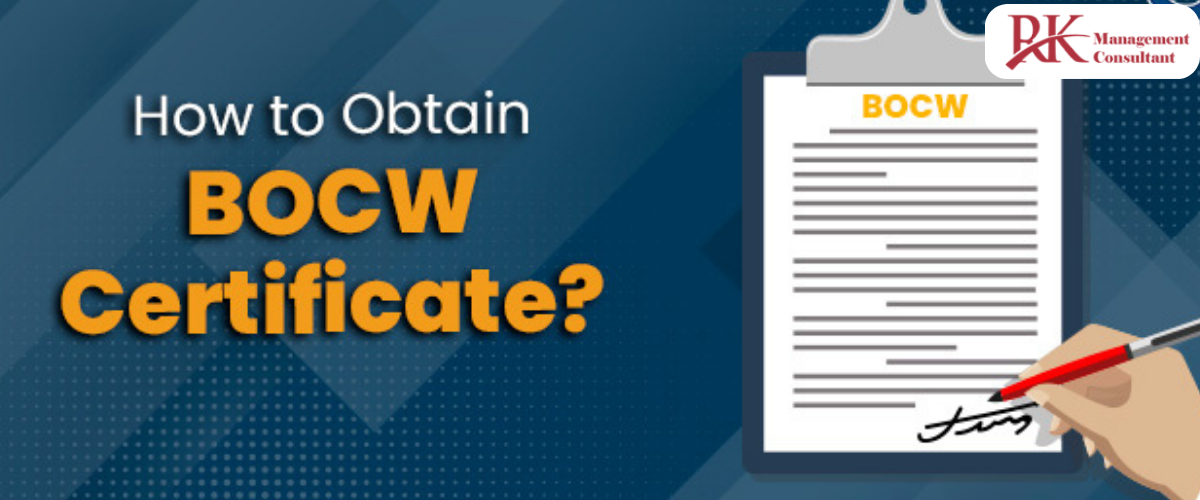Bocw Registration Services in Haryana: Everything You Need to Know
The Building and Other Construction Workers' Welfare (BOCW) Act, 1996, is a social welfare legislation enacted by the Government of India to regulate the employment and working conditions of construction workers in the country. The Act provides for the registration of all establishments engaged in building and other construction work and mandates the payment of cess by such establishments for the welfare of construction workers.
The State of Haryana has implemented the BOCW Act, and the Department of Labour and Employment is responsible for registering and administrating BOCW services in Haryana the state. In this article, we will take a closer look at the BOCW registration services in Gurgaon, Haryana and everything you need to know about them.
Registration Process:
Every establishment engaged in building and other construction work in Haryana is required to register under the BOCW Act. The registration process involves the following steps:
- Application: The establishment needs to submit an application in the prescribed format to the concerned Registering Officer.
- Documents: The establishment must also submit the necessary documents, including proof of ownership or lease of the premises, proof of identity and address of the owner, and details of the employees engaged in the construction work.
- Payment of Cess: Once the application is processed, the establishment is required to pay the cess as per the rates prescribed by the government.
- Registration Certificate: On receipt of the cess payment, the Registering Officer issues a registration certificate to the establishment.
- It is important to note that the BOCW registration is valid for a period of one year and needs to be renewed annually by submitting the prescribed fees and documents.
Benefits of BOCW Registration
The BOCW Act provides for several benefits to construction workers, and the registration of establishments under the Act is a crucial step in ensuring these benefits reach the workers. Some of the benefits of BOCW registration in Haryana are:
- Welfare Fund: The cess collected from the registered establishments is used to create a welfare fund for the benefit of construction workers. This fund provides financial assistance for education, medical expenses, and housing, among other things.
- Health and Safety Measures: The Act mandates that all registered establishments provide health and safety measures for their workers, including clean drinking water, first aid facilities, and protective gear.
- Employment Benefits: Registered establishments are required to provide employment benefits to their workers, such as weekly rest days, overtime pay, and paid leave. Social Security: The Act also provides for social security measures for construction workers, such as pension and gratuity schemes.
Penalties for Non-Compliance
Non-compliance with the BOCW Act can lead to severe penalties and legal action against the establishment. Some of the penalties for non-compliance are:
- Imprisonment: The Act also provides for imprisonment of up to three months for any person found guilty of obstructing an inspector or failing to comply with the Act.
- Cancellation of Registration: The registration of an establishment can be canceled if it is found to be in violation of the Act.
- The BOCW Act is a crucial legislation for the welfare of construction workers in India, and the registration of establishments under the Act is an essential step in ensuring that the benefits of the Act reach the workers. The registration process in Haryana is straightforward, and establishments must ensure that they comply with the Act to avoid penalties and legal action. By registering under the Act, establishments can not only fulfill their legal obligations but also contribute to the welfare of the construction workers in the state.
Conclusion
1. Welfare Fund: The cess collected from the registered establishments is used to create a welfare fund for the benefit of construction workers. This fund provides financial assistance for education, medical expenses, and housing, among other things. 2. Health and Safety Measures: The Act mandates that all registered establishments provide health and safety measures for their workers, including clean drinking water, first aid facilities, and protective gear. 3. Employment Benefits: Registered establishments are required to provide employment benefits to their workers, such as weekly rest days, overtime pay, and paid leave. 4. Social Security: The Act also provides for social security measures for construction workers, such as pension and gratuity schemes.
Penalties for non-compliance with the BOCW Act
Non-compliance with the BOCW Act can lead to severe penalties and legal action against the establishment. Some of the penalties for non-compliance are:
Fine: Any establishment found to be in violation of the Act can be fined up to Rs. 10,000

